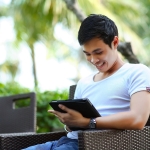Food and Mood – These Dietary Recommendations are Positively Uplifting!
The connection between nutrition and your physical health is unequivocal. Excessive sugar consumption can lead to obesity and is also linked to inflammation and other chronic diseases such as diabetes; a high intake of unhealthy trans-fats increases your risk of future cardiac events; deficiencies in essential vitamins can accelerate cellular degeneration, thereby heightening your susceptibility to cancers and other serious illnesses. While these connections may appear simplified, their validity is well-supported by scientific evidence.
Yet despite the growing body of research illustrating the connection between a nutritious diet and enhanced mood and cognitive function, your dietary habits are often disregarded as a factor contributing to your emotional distress.
Research is increasingly confirming that inflammation of the central nervous system is a key factor in many chronic conditions, including mental health disorders such as anxiety, depression, and more severe disorders such as Major Depressive Disorder. Eating foods that are high in sugar and saturated fats can elevate inflammatory markers in your body and impact mental health by exacerbating anxiety, depression, and mood fluctuations. Dietary changes aimed at reducing inflammation and oxidative stress, as well as enhancing the gut microbiome — crucial for nervous system development and function — can substantially enhance your mental well-being.
If you would like to discuss strategies on how to improve your nutritional intake to optimize your mental and overall health, please give us a call today at 703-532-5892. We use a functional medicine approach to treatment; our goal is to treat the “whole you” so that all areas of your health are improved.
In the meantime, as the old saying goes, “you are what you eat,” so with your emotional wellbeing in mind, here are some dietary tips on how you can improve your mood and mental health.
1. Incorporate more foods rich in B-vitamins (B12, B6, Folate).
B-vitamins are involved in a number of important processes in the brain: they support cellular energy production, proper functioning of the nervous system, red blood cell formation, DNA formation, and the regulation of hormones. Studies show that deficiencies in certain B vitamins can result in an increased risk of depression.
Foods rich in B vitamins include beans, lentils, raw spinach, asparagus, romaine lettuce, broccoli, avocado, fish, shellfish & eggs.
2. Talk to us about supplements.
Even if you think you have a relatively healthy diet, supplements can provide additional support to your immune system and lower your risk of developing a host of inflammatory conditions, including depression.
Vitamin D (serotonin synthesis), vitamin C, magnesium (stress support), vitamin E (mood regulation), CoQ10, glutathione, and Omega-3 are additional examples of supplements with clinical applications in depression, anxiety and other mental health disorders.
3. Eat foods that provide gut support.
One of the many neurotransmitters used by the brain is serotonin. Among its many functions, serotonin is involved in regulating mood. We now know that as much as 95% of serotonin is produced in the intestines so maintaining the integrity of your gut microbiome with a proper balance of good and bad bacteria will help keep the production of serotonin in balance as well.
Regularly eating foods like fermented vegetables, sauerkraut, miso, and bone broth will keep your gut microbiome stocked with good bacteria.
4. Eat high protein foods at every meal to support neurotransmitter production.
Your body produces neurotransmitters by utilizing nutrients in the food you eat, primarily amino acids. For example, serotonin is a byproduct of the amino acid tryptophan; noradrenaline is made from the amino acid tyrosine, which is also converted to dopamine. Serotonin, noradrenaline (aka norepinephrine) and dopamine belong to a group of neurotransmitters called monoamines that play a major role in mood & cognitive function.
High protein foods like raw nuts, cold water fish, beans, and eggs, consumed on a regular basis, will ensure that your body is getting enough of the building blocks it needs to produce these important chemical messengers that will keep your mood stabilized.
5. When snacking, always balance carbs with fats and protein.
Keeping your carbohydrate and protein intake in balance will help stabilize mood and mental clarity and while avoiding the peaks and valleys of blood sugar levels that can also lead to other serious conditions like insulin resistance and pre-diabetes.
What does a complete protein and carb combination look like? Try combinations like: hummus with celery, bell peppers and/or carrots; apple, pear, or banana with almond butter (or any nut butter); sunflower seeds and raisins. For more combinations, click here.
6. Saffron and turmeric may support people with anxiety & depression.
Foods with turmeric and saffron have for ages been eaten for medicinal support. A study published in Journal of Affective Disorders, reported that a treatment of curcumin (the active ingredient in turmeric) and saffron were effective at easing anxiety and depressive symptoms in people with major depressive disorder.
The anti-inflammatory and antioxidant properties in turmeric and saffron help calm inflammation. Add them to your foods for flavor and anti-inflammatory benefits.
While more severe mental health conditions may necessitate treatments such as psychotherapy and medication, especially if your emotional well-being poses a risk of harm to yourself or others, your diet remains as an effective healing resource. When complemented by other strategies that address inflammation, such as exercise, meditation, and stress-reduction techniques, the result can be a brighter and more positive perspective on your life.
We are here for you, and we want to help.
Our goal is to return you to optimal health as soon as possible. To schedule an appointment please call: 703-532-4892 x2
References:
Gorbachev D, Markina E, Chigareva O, Gradinar A, Borisova N, Syunyakov T. Dietary Patterns as Modifiable Risk Factors for Depression: a Narrative Review. Psychiatr Danub. 2023 Oct;35(Suppl 2):423-431. PMID: 37800271.
Ma Q, Xing C, Long W, Wang HY, Liu Q, Wang RF. Impact of microbiota on central nervous system and neurological diseases: the gut-brain axis. J Neuroinflammation. 2019 Mar 1;16(1):53. doi: 10.1186/s12974-019-1434-3. PMID: 30823925; PMCID: PMC6397457.
Marx W, Moseley G, Berk M, Jacka F. Nutritional psychiatry: the present state of the evidence. Proc Nutr Soc. 2017 Nov;76(4):427-436. doi: 10.1017/S0029665117002026. Epub 2017 Sep 25. PMID: 28942748.
Petridou ET, Kousoulis AA, Michelakos T, Papathoma P, Dessypris N, Papadopoulos FC, Stefanadis C. Folate and B12 serum levels in association with depression in the aged: a systematic review and meta-analysis. Aging Ment Health. 2016 Sep;20(9):965-73. doi: 10.1080/13607863.2015.1049115. Epub 2015 Jun 8. PMID: 26055921.
Elizabeth Lipski, Digestive Wellness: How to Strengthen the Immune System and Prevent Disease through Healthy Digestion, 3rd ed. (New York: McGraw-Hill, 2004)
Roth W, Zadeh K, Vekariya R, Ge Y, Mohamadzadeh M. Tryptophan Metabolism and Gut-Brain Homeostasis. Int J Mol Sci. 2021 Mar 15;22(6):2973. doi: 10.3390/ijms22062973. PMID: 33804088; PMCID: PMC8000752.
Lopresti AL, Drummond PD. Efficacy of curcumin, and a saffron/curcumin combination for the treatment of major depression: A randomised, double-blind, placebo-controlled study. J Affect Disord. 2017 Jan 1;207:188-196. doi: 10.1016/j.jad.2016.09.047. Epub 2016 Oct 1. PMID: 27723543.











Leave a Reply
Want to join the discussion?Feel free to contribute!